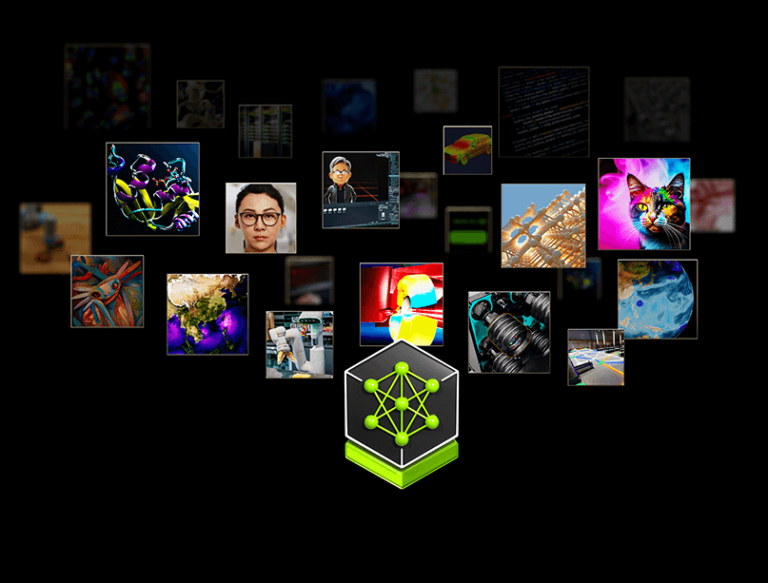Exploring the Future of AI: How AI Will Reshape the Future of Work

Artificial Intelligence (AI) has become a transformative influence, reshaping industries and societies across the globe. From healthcare to finance, education to transportation, AI is revolutionizing the way we live and work. In this article, we’ll explore AI’s profound impact on various aspects of our lives and delve into the exciting possibilities it brings.
Understanding AI
Before delving into its ramifications, let’s elucidate the concept of AI. AI involves replicating human intelligence in machines, enabling them to execute tasks traditionally performed by humans, including visual perception, speech recognition, decision-making, and language translation. Machine learning, a part of AI, helps systems improve at tasks by learning from experience without specific instructions.
AI in Healthcare
In healthcare, AI is improving diagnoses, treatments, and patient care. Machine learning algorithms can study huge amounts of medical information to spot patterns and predict diseases accurately. This capability not only aids in early detection but also personalizes treatment plans, leading to better outcomes and reduced healthcare costs.
AI in Finance
In the financial sector, AI is heavily utilized. AI algorithms immediately analyze market trends, helping banks and other financial companies make quick decisions using data. AI also makes it easier to spot fraud, manage risks, and give better service to customers, making the financial world safer and more efficient.
AI in Education
AI is revolutionizing education by offering personalized learning experiences. Adaptive learning platforms leverage AI to assess students’ strengths and weaknesses, tailoring curriculum and resources accordingly. Additionally, AI tutors provide immediate feedback and support, supplementing traditional teaching methods and promoting student engagement and retention.
AI in Transportation
The transportation industry is undergoing a significant change with AI. Autonomous vehicles equipped with AI technology promise safer and more efficient transportation systems. AI algorithms optimize routes, reduce traffic congestion, and minimize accidents, paving the way for a future of sustainable and interconnected mobility.
Ethical Considerations
While the potential of AI is vast, it also raises ethical concerns. Issues surrounding data privacy, algorithmic bias, and job displacement necessitate careful consideration and regulation. As AI progresses, it becomes essential to prioritize transparency, accountability, and inclusiveness to guarantee fair distribution of its advantages.
The Road Ahead
As we look to the future, AI’s trajectory appears boundless. Advancements in AI research and development promise even greater innovations, from humanoid robots to quantum computing. However, realizing AI’s full potential requires collaboration across disciplines and proactive efforts to address societal challenges.

The Role of Regulation
As AI advances, the need for robust regulation becomes increasingly apparent. Governments and regulatory bodies must establish a framework for AI development, deployment, and usage, including data privacy guidelines, algorithm transparency, and accountability in AI-driven decisions. By implementing responsible regulations, we can mitigate risks and maximize the societal benefits of AI technologies.
Embracing AI Innovation
Even though it’s challenging and uncertain, embracing AI innovation is essential to keep up in a fast-changing world. Businesses and organizations harness AI’s power stand to gain a competitive edge, whether through streamlining operations, enhancing customer experiences, or driving innovation in products and services. Embracing AI requires a mindset shift, fostering a culture of experimentation, learning, and adaptation.
Investing in AI Education
As AI increasingly integrates into various sectors, investing in AI education is crucial for preparing the future workforce, which includes equipping individuals with the skills needed to leverage AI technologies effectively, such as data analysis, programming, and machine learning. Additionally, fostering interdisciplinary collaboration between AI experts and domain specialists is essential for unlocking the full potential of AI across industries.
Nurturing Ethical AI Development
Central to the advancement of AI is the cultivation of ethical principles guiding its development and deployment. Stakeholders must prioritize fairness, transparency, and accountability in AI systems to ensure they serve the greater good of those involved in actively addressing biases in data, algorithms, and decision-making processes and upholding human rights and dignity in AI applications. By nurturing ethical AI development, we can build trust among users and foster responsible innovation.
Collaborative Research and Development
Collaboration is vital to unlocking the full potential of AI. Governments, academia, industry, and civil society must collaborate on research and development initiatives to address complex challenges and drive innovation. Open data sharing, interdisciplinary partnerships, and international cooperation can accelerate progress in AI research, leading to breakthroughs in healthcare, climate change mitigation, and social equality.
Empowering Inclusive AI Adoption
Ensuring equitable access to AI technologies is essential for realizing their benefits across diverse communities. Efforts to bridge the digital divide, promote digital literacy, and address socio-economic disparities are critical for fostering inclusive AI adoption. Additionally, engaging stakeholders from marginalized groups in AI design and decision-making processes can help mitigate biases and ensure AI solutions meet the needs of all users.
Embracing AI for Social Good
Beyond its economic and technological implications, AI presents opportunities for driving social good and addressing pressing global issues. AI-powered solutions can enhance disaster response and humanitarian aid efforts by analyzing vast data to identify needed areas and coordinate rescue operations more effectively. Moreover, AI has the potential to revolutionize environmental conservation efforts by monitoring ecosystems, predicting natural disasters, and optimizing resource management strategies for sustainability.
Fostering Ethical AI Leadership
In AI, leadership requires a commitment to ethical decision-making and responsible technology stewardship. Leaders must prioritize ethical considerations in AI development and usage, ensuring that AI systems align with human values and serve the common good for those involved in establishing clear ethical guidelines, promoting transparency and accountability, and fostering ethical innovation within organizations and institutions.
Empowering Ethical AI Advocacy
Individuals, communities, and advocacy groups play a crucial role in shaping the ethical trajectory of AI. By raising awareness about the moral implications of AI and advocating for policies prioritizing human rights, privacy, and equity, they can hold stakeholders accountable and influence the direction of AI development. Empowering ethical AI advocacy requires education, collaboration, and civic engagement to ensure that AI technologies serve the interests of society as a whole.
In summary, embracing AI for social good, fostering ethical AI leadership, and empowering ethical AI advocacy is essential for realizing AI’s transformative potential while safeguarding human values and promoting inclusive prosperity. As we navigate the complexities of the AI landscape, let us remain committed to building a future where AI enhances human flourishing and advances the greater good.
Conclusion: A Future Shaped by AI
In conclusion, the future of AI holds immense promise for driving positive change and shaping a better world. From revolutionizing industries and improving quality of life to addressing global challenges, AI has the potential to transform society in profound ways. However, realizing this potential requires collective action, ethical stewardship, and inclusive governance. By harnessing AI’s power responsibly, we can create a future where technology serves humanity, enhances well-being, and fosters prosperity for all. As we embark on this journey, let us remain steadfast in our commitment to ethical AI principles and collaborative innovation, ensuring that the benefits of AI are shared equitably and sustainably for generations to come.






